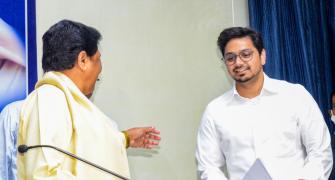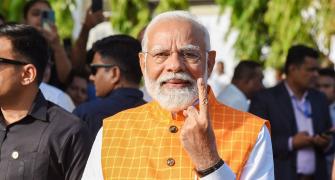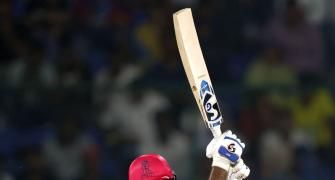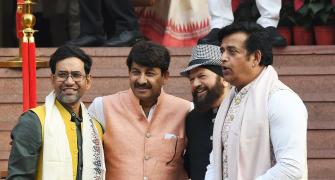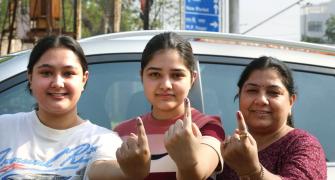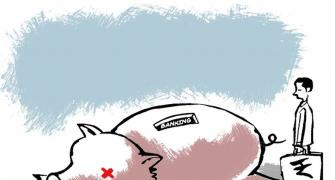The two-day national executive meet of the Bharatiya Janata Party concluded on Tuesday with Deputy Prime Minister Lal Kishenchand Advani endorsing party president Venkaiah Naidu's proposal of "replicating the Gujarat experience in the next series of assembly and Lok Sabha elections."
Justifying Naidu's proposal, Advani said, "If we are attacked on Godhra and Hindutva there will be a natural reaction. Hindutva is a noble concept."
Addressing the members, Advani said, "It is, however, the campaign of calumny and hatred unleashed by our adversaries in the wake of Godhra and its aftermath against the Gujarat police, the Gujarat adminstration, the BJP government in the state and personally against Narendra Modi, which made the Gujarat electorate really angry and which has given this landslide victory."
"Party president Venkaiah Naidu has rightly said that Hindutva is a noble concept, and the people are not going to let secularism become a cover for Hindu-bashing. Nor should it become a euphemism for minorityism'," he said.
Prime Minister Atal Bihari Vajpayee, in his closing address, explained: "Hindutva is merely a way of life and cannot be an election issue."
With an apparent reference to Vishwa Hindu Parishad leader Praveen Togadia's latest claim that India would be converted into a Hindu Rashtra within two years, Vajpayee questioned, "What is Bharat now?"
"There is no difference between Bharat and Hindu Rashtra. The Supreme Court judgment is very clear on this," the prime minister said.
In an obvious attempt to keep the National Democratic Alliance partners happy, Vajpayee said, "The BJP bears the historic responsibility of protecting India's national unity, strengthening national security and ensuring all-round national development."
"The Congress party is incapable of discharging this responsibility," Vajpayee insisted, while calling upon his party to rise to the occasion by successfully tackling the immediate political challenge before the party and, at the same time, focusing on the long-term issues of nation-building.
"This is not a game of winning a few more seats or winning the elections in this state or that state. The party must always be guided by the lofty goal, for whose attainment we plunged into electoral politics," the prime minister exhorted.
Congratulating the people of Gujarat for giving a renewed mandate to the BJP in the just concluded assembly election, he attributed the victory to the "many decades of tapasya of the BJP workers and the good work done by the party governments."
He also expressed confidence that the new government under the chief ministership of Modi would fulfil the expectations of the people of Gujarat.
Releasing the political resolution, adopted by the two-day meet to the media, BJP spokesman Arun Jaitley clarified, "Cultural nationalism implies to the cultural personality of this country, which has been the basis of holding this country together."
The political resolution said, "The election (in Gujarat) was considered a trial for the cultural nationalism of the BJP and our national sovereignty. Our opponents considered terrorism as a virtual non-issue. The people of Gujarat endorsed our commitment to cultural nationalism and voted us back for a third time in a row. Gujarat witnessed an unprecedented pro-incumbency wave."
Accusing the Congress party for not implementing Prevention of Terrorism Act in states having its government, the BJP resolution claimed: "It was a significant achievement of the of the NDA government in preparing the nation in combating terrorism."
"We isolated Pakistan's ideology of using terrorism as an instrument of state policy and the world today abhors that policy," the resolution read.
Expressing concern over what it claimed were "aberrations in the human rights movement in India", the resolution said, "Traditionally the human rights movement was aimed at protecting the rights of a citizen against the oppressive power of the State. Currently, the real threat to human rights is not from the State, but from private terror groups."
"Regrettably, many human rights NGOs have decided to side with these terror groups from whom the real threat of terror comes," it added.

